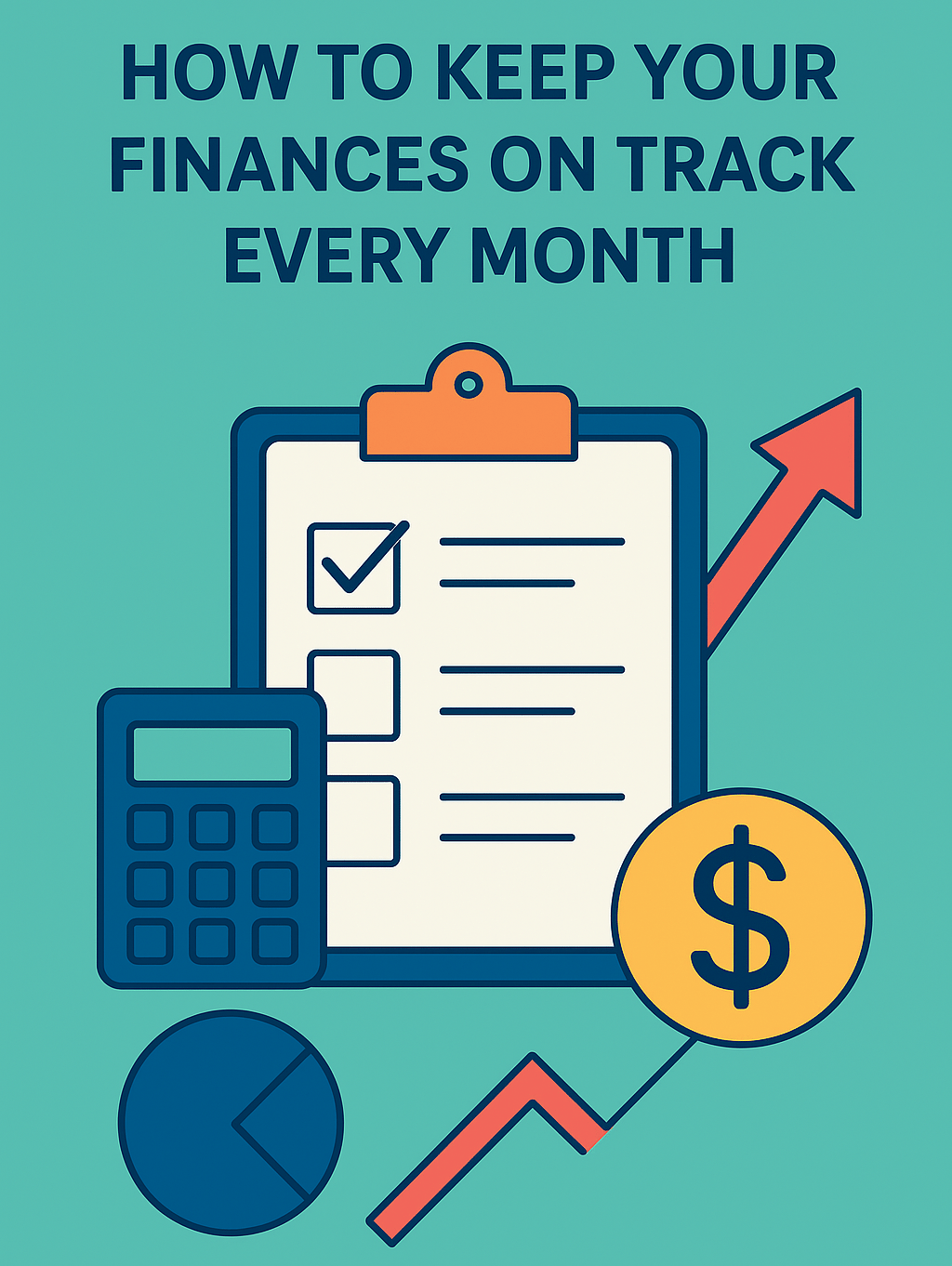How to Keep Your Finances on Track Every Month
Discover practical strategies to keep your finances on track every month. Learn how to budget smarter, control spending, build an emergency fund, and make consistent progress toward financial stability. Perfect for anyone who wants to take charge of their money and create long-term financial peace.
10/16/20252 min read


Managing your finances effectively is one of the most powerful ways to build a secure and fulfilling life. Many people think that improving their financial situation means simply earning more money, but in reality, it’s about how well you manage what you already have. Financial stability is the result of consistent planning, smart decision-making, and disciplined habits.
The first and most essential step is understanding where your money goes. Track every expense — from your rent and groceries to your streaming subscriptions and daily coffee. By seeing exactly where your money is spent, you’ll gain a clear picture of your financial behavior. This awareness is the foundation for change. Once you identify where you might be overspending, you can make informed adjustments and start saving more effectively.
Next, create a monthly financial plan. This doesn’t have to be complicated — just list your income, fixed expenses, variable expenses, and savings goals. Assign every dollar a purpose. A simple rule that works for many is the 50/30/20 rule:
50% of your income for needs (rent, utilities, groceries)
30% for wants (leisure, hobbies, lifestyle)
20% for savings or paying off debts
By following a structure like this, you ensure your money works for you, not against you.
Another key point is to build an emergency fund. Life happens — cars break down, medical bills appear, jobs change — and without a safety net, even small setbacks can create stress or debt. Aim to save at least three to six months’ worth of essential expenses. Start small, even if it’s just $10 or $20 a week, and grow it over time. The peace of mind it brings is worth every cent.
To maintain financial health, review your finances regularly. At least once a month, go over your spending and savings to see what’s working and what isn’t. Think of your budget as a living document — it should evolve as your income, goals, and priorities change.
Lastly, invest in your financial education. The more you understand about money — from budgeting and credit to investments and taxes — the more control you’ll have over your future. There are countless free resources, blogs, and videos online that can teach you how to make your money grow and protect it wisely.
Remember: Financial success isn’t built overnight. It’s the result of small, smart choices repeated over time. Whether it’s tracking your expenses, cutting back on unnecessary costs, or setting savings goals, every step you take brings you closer to long-term stability.
💡 Takeaway: Start today by reviewing your last month’s bank statement. Highlight where you could have saved, and make one change — just one — to improve your financial habits this month. Consistency is what will truly transform your finances.